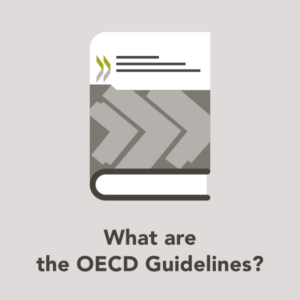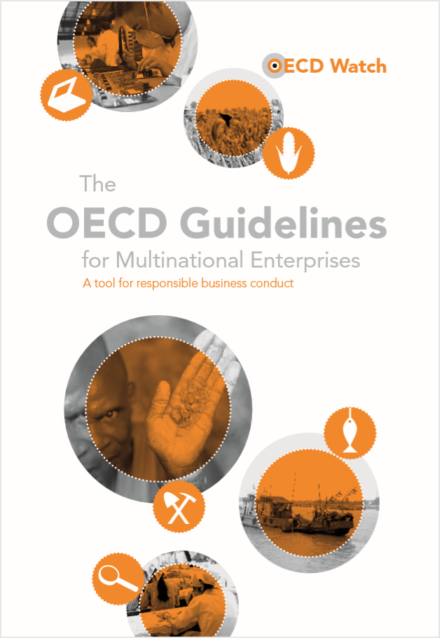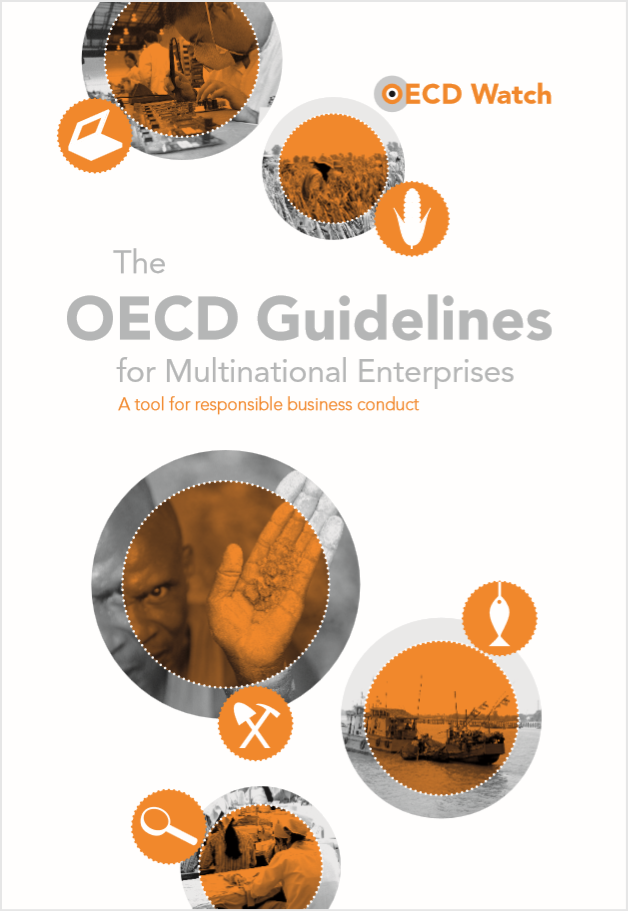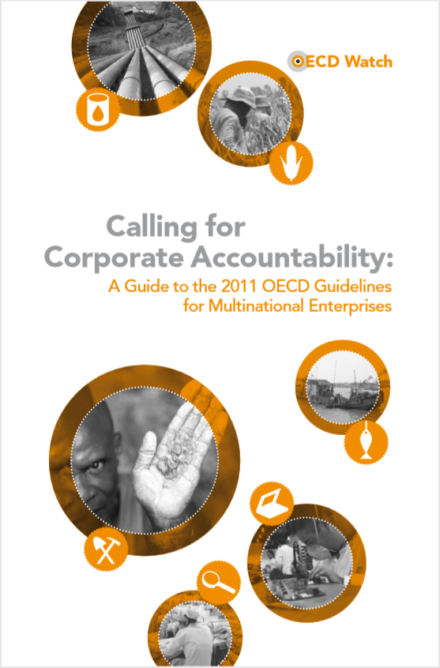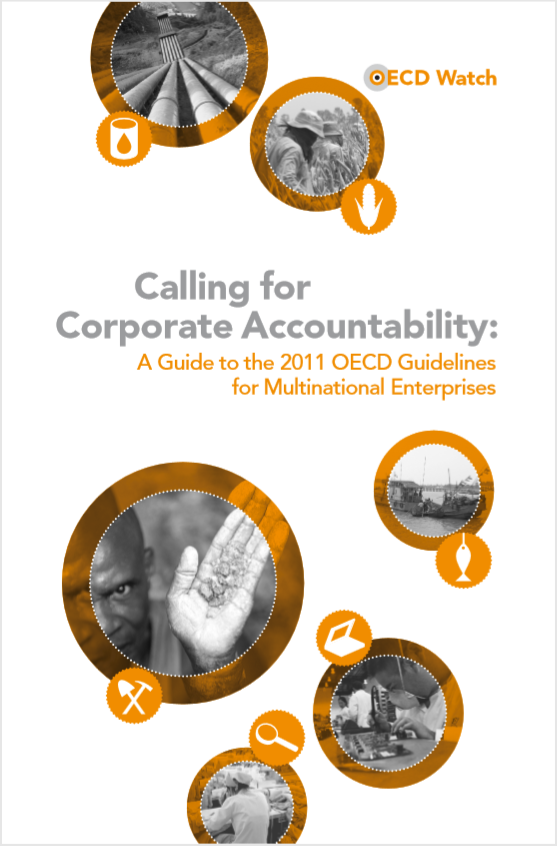All of OECD Watch’s web pages under complaints are also available in a single document in English, French, Spanish, Arabic, and Turkish.
ES: Todas las páginas web de OECD Watch relacionadas con las quejas también están disponibles en un solo documento en español.
FR: Toutes les pages Web d’OECD Watch consacrées aux plaintes sont également disponibles dans un seul document en français.
AR: اللغة العربية: تتوفر صفحات منظمة OECD Watch الإلكترونية الخاصة بالشكاوى في وثيقةٍ واحدةٍ باللغات الإنجليزية والفرنسية والإسبانية والعربية. Final-complaints-webpages-Arabic
TR: OECD Watch’ın şikâyetler başlığı altındaki tüm web sayfaları Türkçe olarak tek bir dokümanda da mevcuttur.
You can file a complaint under the OECD Guidelines against a company you feel has not met the Guidelines’ standards. While the Guidelines and complaint system are voluntary for companies, you have higher chances of achieving remedy and promoting better business conduct if you follow OECD Watch’s advice here, including on embedding your complaint in a broader strategy for justice.
The OECD Guidelines include a complaint system for victims of corporate harm. National Contact Points (NCPs) – the government offices that implement the Guidelines – are required to handle complaints against companies alleged not to have met the Guidelines’ standards. Part II of the OECD Guidelines (called the ‘Procedures’) sets out how NCPs should handle complaints (formally called ‘specific instances’). Through the complaint process, NCPs are expected to help resolve disputes between companies covered by the OECD Guidelines and people harmed by the companies’ business activities.
Civil society from around the world have used the NCP complaint process to fight social and environmental harms connected to corporate misconduct. Complaints sometimes (though not often) result in remedy for victims or prevention of harmful business activity. More often, they raise awareness and help encourage better business conduct in future. In OECD Watch’s experience, civil society that follow OECD Watch’s guidance and also embed their complaint in a larger strategy – seeking international collaboration with other NGOs; engaging the media, government allies, and investors; and even targeting higher legal or normative change where possible – have higher chances of success.
Before filing a complaint, communities and their representatives should consider whether an NCP complaint is the right tool to challenge the harm they are facing. We encourage civil society fighting corporate impacts to read our guidance on the stages of the NCP complaint process and our advice on whether and how to file a complaint.
Stages of an NCP complaint
For potential complainants, it is helpful to consider the complaint process in seven stages:
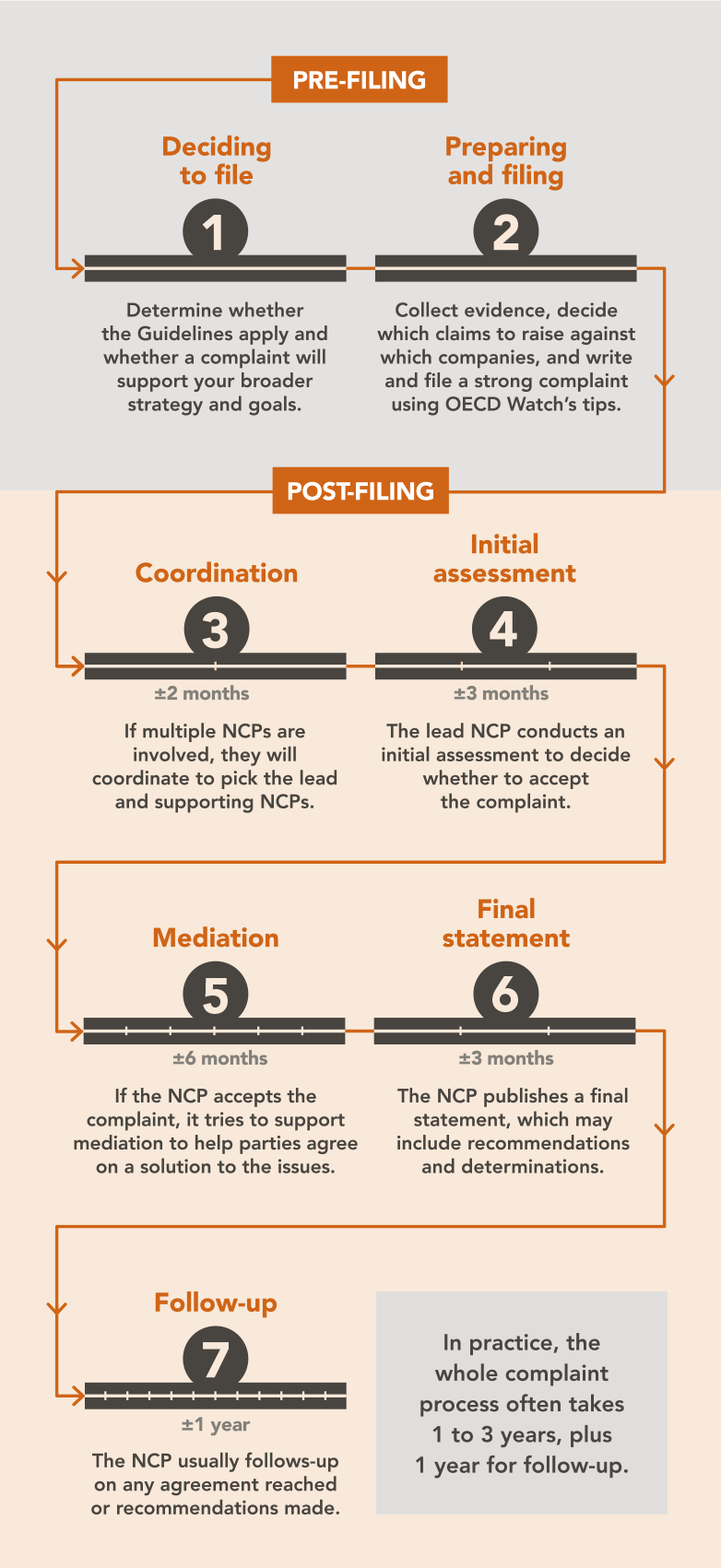
Learn more about each stage of the NCP complaint process:

